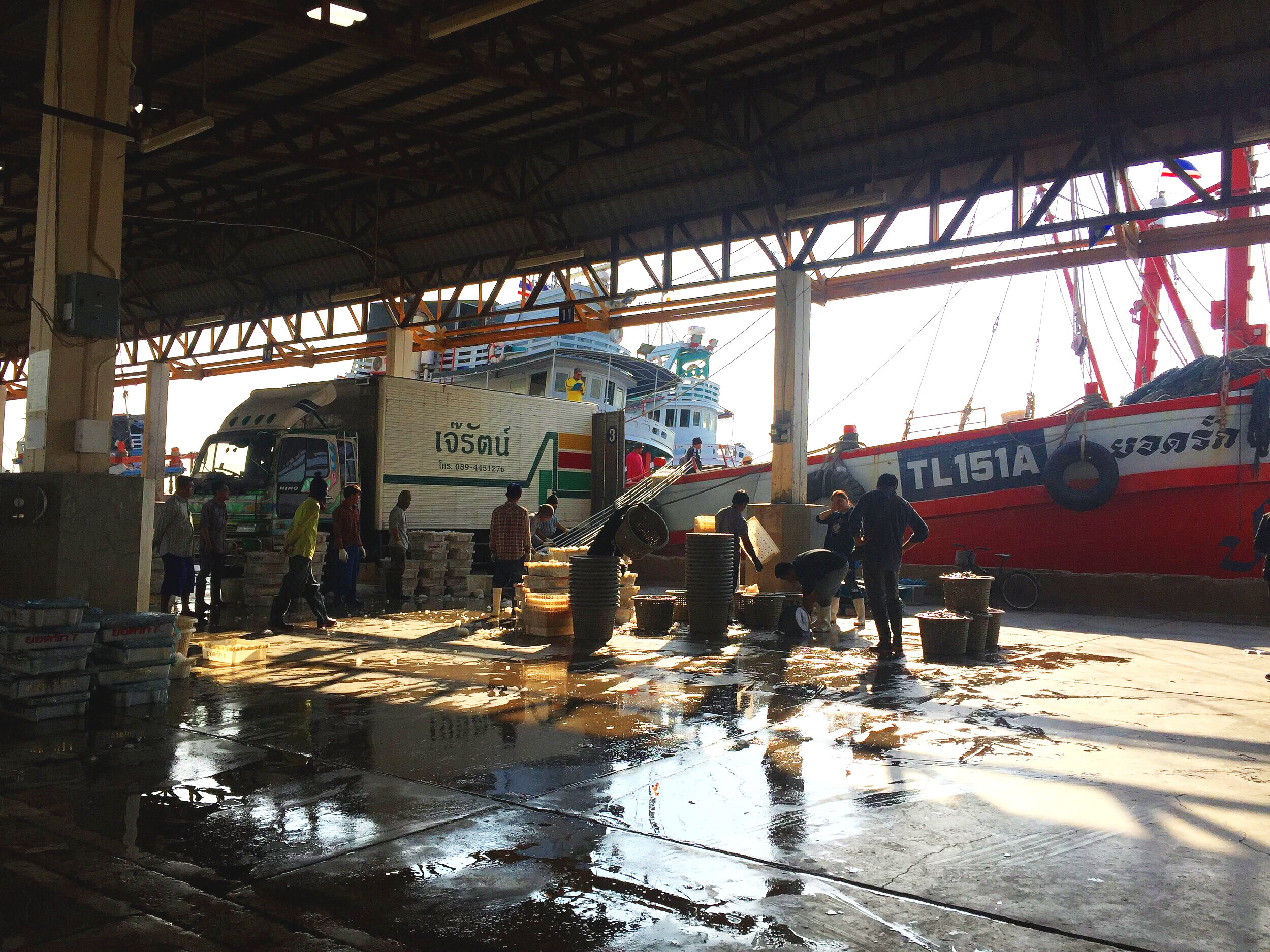I am a political sociologist specializing in international migration, state power, and governance.
At the core of my work is a deep interest in how states and societies interact during governance processes, and how these interactions shape people’s lives and the structures that govern them. Using ethnographic methods, my projects include multi-sited research on migrant work in Thailand, forced migration in Southeast Asia, and refugee resettlement in the United States. I hold a PhD in sociology from the University of California, Los Angeles and am a Postdoctoral Fellow in the Department of Sociology at Stanford University and an American Council of Learned Societies Fellow.

Research and Writing
Labor Migration Control
My first book project is a comparative ethnography of guestwork regimes in Thailand, Southeast Asia’s most popular migrant destination. Examining a puzzling difference in how the state governs migrant workers across locations – strict enforcement of document time limits in some and heightened control over spatial boundaries in others – the book identifies the forces that shape these regulations and illustrates the processes that define them and their consequences for migrant lives and labor. Ethnographic fieldwork in a global seafood supply chain hub and in a regionally-linked special economic zone shows that how a state maneuvers a country’s participation in broader economies affects its migration governance methods, which show up differently in different places. In policy and practice, the Thai state continually adjusts the temporal and spatial boundaries around migrant rights to balance their economic inclusion and social-political exclusion. Such flexible bordering interacts with migrant worker mobility and settlement to shape contrasting conditions of noncitizenship, including trade-offs between rights and social protections, on the one hand, and the ability to live among family and community, on the other. Broadly, the book shows how borders are not simply durable or porous, as conceived by policymakers and even scholars. Rather, they are flexible, able to bend across time and space in ways that meet not only national but regional and global needs.
I am currently completing the manuscript with support from the American Council of Learned Societies Fellowship. Articles from the project are published in Social Problems, International Migration Review, and Social Forces. The research was funded by the Center for Southeast Asian Studies and International Institute at UCLA, the National Science Foundation, and the Social Science Research Council.
Forced Migration and Refugee Resettlement
I am also co-authoring a book with Professor Tomás Jiménez about public-private resettlement models that task American volunteers with integrating refugee families from Afghanistan, Myanmar, Syria and other origins into communities across the US. Based on over 150 in-depth interviews with refugees, volunteers, and resettlement agency staff, and following 12 groupings of such actors over the course of a year, the book shows how brokerage relationships designed to aid refugee “self-sufficiency” through the provision of startup social capital evolve into social ties that shape ongoing refugee experiences of resettlement and integration. In the process, volunteers experience their own unsettling interactions with previously unfamiliar aspects of immigration, American poverty, and social systems. As brokers and objects of integration, they change their outlooks and behaviors. Research was conducted with a team at Stanford University’s Immigration Policy Lab, and early findings are published in Ethnic and Racial Studies.
The current project builds on longstanding interests I have in forced migration and refugee governance in Southeast Asia and the United States. An article in the Journal of Ethnic and Migration Studies analyzes how ethnic social networks and institutions interact with state and international control structures to assist, move, and integrate refugees during a multistage migration process from Myanmar to Los Angeles via Kuala Lumpur, Malaysia. My fieldwork on displacement and asylum seeking in Cambodia, Malaysia, and Thailand has contributed to reports and publications in the Journal of Refugee Studies and Sociology Compass, shorter pieces in the Diplomat and the International Journal of Urban and Regional Research “Spotlight On” series, and a chapter for the book, Displacement: global conversations on refuge.
Migrant Care Work and Infrastructures of Social Reproduction
An ongoing project with Thai labor geographer, Kriangsak Teerakowitkajorn and Thai human rights advocate, Roisai Wongsuban, studies how migrant care workers in Thailand sustain themselves and support their families amid legal insecurity and without government social protections. Interviews with migrant workers, employers, and government officials reveal that, despite the informality and unregulated nature of migrant care work (e.g., childcare, elderly care, domestic work) in Thailand, such workers are employed in consecutive jobs for several years, even decades, contributing essential work to Thai society in the long term. With a focus on grassroots coping strategies and local public-private collaborations around migrant health, childcare, and education, we seek to understand how these care workers survive and reproduce their labor with limited access to formal social protections and how state agencies, NGOs, and donors can bolster infrastructures to benefit migrant care workers and Thai society as it ages. A pilot project investigating care work in Bangkok and Surat Thani was funded by Stanford’s King Center on Global Development.

Teaching
I’ve developed my pedagogy as a Teaching Assistant/Associate for undergraduate courses in classical and contemporary sociological theory and comparative immigration in the sociology department at the University of California, Los Angeles and as a lecturer on Contemporary Immigration in Global Perspective in the sociology department at the University of California, Berkeley. I have also mentored students in social scientific research and writing at UCLA and Stanford University. These experiences have laid the foundation for an evolving teaching philosophy based on the core components of linking social theory to everyday life, collaborative learning, and writing practice.
